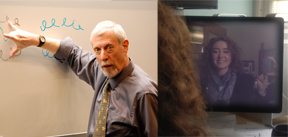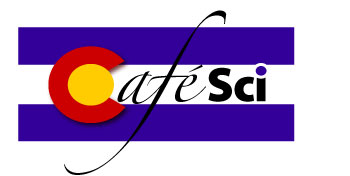About the topic
Bio
Get the Flyer (pdf)
About the topic
Higher education has never been "free," even in countries where students don't pay tuition; they, or their parents, pay for it in taxes. There is some uncertainty about what tuition is paying for: it might be the knowledge and skills acquired (you can now discuss philosophy, or remove a spleen). Instead, maybe it's the University's certification that you can do that (your diploma or degree). Or it could be the opportunity to spend 4 years marinating in a sauce of inquiry, learning, mentoring, and growth. It certainly offers value for money: graduates with bachelor's degrees earn about twice what high school graduates do, and those with doctorates about three times as much.
In the US, as state funding for public universities declines to near-zero, students are asked to make up the shortfall. To many, this model is unsustainable: students and their families won't be able to afford the costs, and some will calculate that they are unlikely to ever earn back those costs. Some politicians are arguing that college programs whose graduates are "unemployable" (most of the humanities, they say) should pay higher tuitions, since they will not be paying higher taxes; if this view prevails, humanities will start to disappear from the college calendar.
Against this background, enter the MOOC.
The Massive Open Online Course idea and name started in 2008, when a group of Canadian educators used an open platform to deliver the content of their course on education and technology. Spontaneously, students in the course invited their friends to join the online discussions, and eventually over a thousand people took the interchange beyond the limits of the course itself.
But the revolution began just a year ago, when Sebastian Thrun and Peter Norvig at Stanford decided to put their CS221 artificial intelligence course on a platform that anyone in the world could join. It was extensively hyped, and eventually 160,000 people signed up for it. Now, it's true that only 23,000 were still in it after the first few sessions, and only 6,000 finished the final test; but that must be compared to the 200 or so who take the course on campus. Successful students received a "certificate of completion" but no course credit.
Shortly after the course ended, Thrun left Stanford to join two others in founding Udacity, a for-profit MOOC-delivery organization. The courses are of reasonable quality, and all so far are in physics and computer science. Udacity has millions in venture capital, which allows them to make online presences with high production values, but it's not yet clear how the VCs think they will make back their investment; so far, all courses are free. There are a number of other MOOC hosts now in the for-profit space, and some do charge for their courses, which technically makes them ordinary online classes, not MOOCs in the strict sense. They are "extension" type classes, in photography or woodworking, say, that one would similarly pay for at a place like Denver Free University.
About free: free for a MOOC means as in "free beer;" free in Denver Free University is as in "free speech."
Coursera was started shortly after Udacity, also by Stanford faculty. It is non-profit, and does not generate content, but makes its platform available to Universities that apply for membership. It claims to be highly selective and only admit elite schools, though that is a difficult definition, and it's not at all clear that the "best" schools (usually based on the size of their endowments and research enterprises) have the best courses. Coursera has about $30 million in VC funding, and again the financial model is unclear, as their courses are also free.
The biggest mystery is edX, started when Harvard and MIT each put up $30 million dollars. They were joined by UC Berkeley and the University of Texas system, which paid for the privilege. Recently they announced that they would partner with the publishing and educational giant Pearson to allow students who take one of their MOOCs to be tested at a Pearson testing center, for which they would pay a fee and receive a "validated certificate" which presumably employers would honor as if it were an actual college credit. Pearson has hundreds of centers in 10 countries, but it's not clear that this model will raise enough funds to satisfy the teachers, Universities, and VCs who all have skin in this game. Or if it is sufficiently robust academically (only final exams will be proctored).
So here's what we've been thinking about: "Free beer" is not a business model. Unless:
A. It's a loss leaderŚlure students in and get them hooked on your courses, then convince them that if they pay, they'll profit; this is The Old Dope Peddler method.
B. It's a predatory moveŚbreak and destroy the poorer competitors (as Amazon did to Borders; Wal-Mart did to middle America; China may do to the world). Once your competition is gone, you make the rules and set the prices. Sebastian Thrun of Udacity has said "in 50 years there will be no more than 10 higher education institutions." Is this his plan?
If A., very soon MOOCs will be neither massive nor open; they will have a core of registered paying customers, RPC. Then:
1. Perhaps others can lurk-to-learn; they won't get individual help but can join unmoderated and uncontrolled discussion and self-help groups. These could become useful if someone figures out how to do it; we don't know any of them that have done so yet.
2. Income can be wrung from at least some of the lurk-to-learners by offering them a certified final exam at a testing center (for a price that would beŚmaybeŚlower that the true target audience, the RPCs, pay.
3. So, 3 tiers of students could coexist in one course:
i. Actual enrolled bricks-and-mortar undergrads who are put out to pasture on the plains of the net (this appeals to community colleges which are habitually overenrolled and crowded).
ii. Online global learners who pay to be tested; get credit for a testing and administration fee.
iii. Lurk-to-learners who learn on their own; they may get a meaningless "certificate."
How long will this attract 160,000 students before the glitz wears off?
If B. is really what's going on, Universities will need to fight back by pushing the narrative that the on-campus experience can't be matched by impersonal online courses. This will be a difficult task, as they'll have to prove that it's not only better, but (let us say) four, or ten, times better, depending on what MOOCs eventually cost. Universities lose money charging $10,000 a year in tuition, but an online school can charge far less and profit. The classroom will always be a boutique, but online can scale.
This brief overview only scratches the surface of the discussion of what MOOCs will do to education. One thing is sure: All bets are off, and everything is on the table; there are no longer any established truths in higher education.
Bios
 Helen Macfarlane is the Director of Education Technology for the School of Medicine MD Program. That means that Helen gets to see up close all technologies in education that we rely on to make things better and easier...fall short. This keeps her up at night pondering and plotting what it would look like if everything was better. Helen has a Master’s in Medical & Biological Illustration from Johns Hopkins, which surprisingly, is completely relevant to her current position. In addition to being the co-organizer of the Café Sci at the Wynkoop, she directs the development of the CU Mini Med School.
Helen Macfarlane is the Director of Education Technology for the School of Medicine MD Program. That means that Helen gets to see up close all technologies in education that we rely on to make things better and easier...fall short. This keeps her up at night pondering and plotting what it would look like if everything was better. Helen has a Master’s in Medical & Biological Illustration from Johns Hopkins, which surprisingly, is completely relevant to her current position. In addition to being the co-organizer of the Café Sci at the Wynkoop, she directs the development of the CU Mini Med School.
J. John Cohen is Professor of Immunology at the CU School of Medicine. He has 5 degrees from McGill University in Montreal (oddly, that's precisely the average winter temperature) including an honorary DSc in 2011 for his work in public outreach education. His research involves the role of apoptosis, or programmed cell death, in the immune system; his group showed that the famous killer T cell actually convinces its victims to commit suicide. Lately he's most interested in teaching and in studying how people learn and use what they've learned. His immunology course is online for your dancing and listening pleasure, though it's hardly a MOOC...yet.
